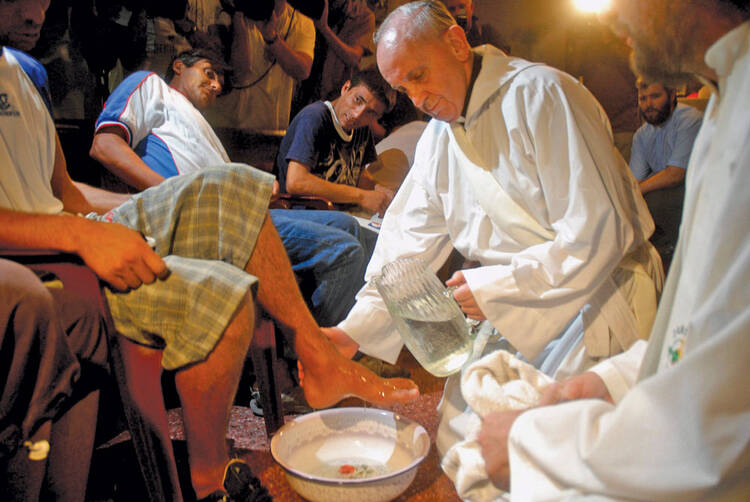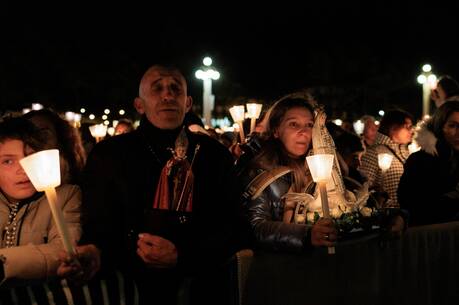This is a feature in the special commemorative issue of America celebrating Pope Francis and his five groundbreaking years. Purchase a copy of Pope Francis: Five Groundbreaking Years here.
Few Catholics, and even fewer Jesuits, ever imagined there would be a Jesuit pope. Most Jesuits make a promise not to accept ecclesiastical office unless solemnly commanded to do so. St. Ignatius witnessed the corruption of the Renaissance church and wanted to keep his companions free of the temptations of high office. In the same spirit, there is said to have been a quiet agreement between recent popes and Jesuit general superiors that Jesuits would be appointed cardinals, if at all, only after they reached 80, when they would no longer be eligible to vote in a papal election. Cardinal Bergoglio was one of the exceptions, a residential bishop, pastoring the archdiocese of Buenos Aires.
After the shock wore off, Jesuits rejoiced in the selection. Adolfo Nicolás, the Jesuit superior general, wrote, “All of us Jesuits accompany with our prayers our brother and we thank him for his generosity in accepting the responsibility of guiding the church at this crucial time.” Father Nicolás recalled that “a distinguishing mark of our Society” is its tie “to the Roman Pontiff by a special bond of love and service.”
In the mind of St. Ignatius, that special bond arises out of the holy father’s care for the universal church. David Brooks understood that Jesuit charism when he speculated (New York Times, 3/15) that like St. Augustine, Pope Francis will reject sectarian Catholicism to embrace the world in all its untidiness. Indeed, in an interview before the conclave, the future bishop of Rome, as he prefers to call himself, had told La Stampa, “Between a church that goes into the street and gets into an accident and a church that is sick with self-referentiality, I have no doubts in preferring the first.”
There was surprise as well about Francis’ choice of a name. No pope before had dared to take up the name of the West’s most revered saint. For Jesuits it seemed less surprising. St. Ignatius had great admiration for Il Poverello. Aspiring to do “great deeds” for God like Francis was at the core of Iñigo de Loyola’s conversion. Later he himself imitated Francis’ poverty, begging for his livelihood and the support of his studies; and until he saw the fruitfulness of an active apostolate, he projected that Jesuits too would lead a life of mendicant preaching.
In addition to Francis Xavier, 12 Jesuit saints or blesseds bear the name Francis. So in choosing Francis as patron, the new pope sheds fresh light on the spiritual kinship between the Company of Jesus and Francis’ Little Brothers.








